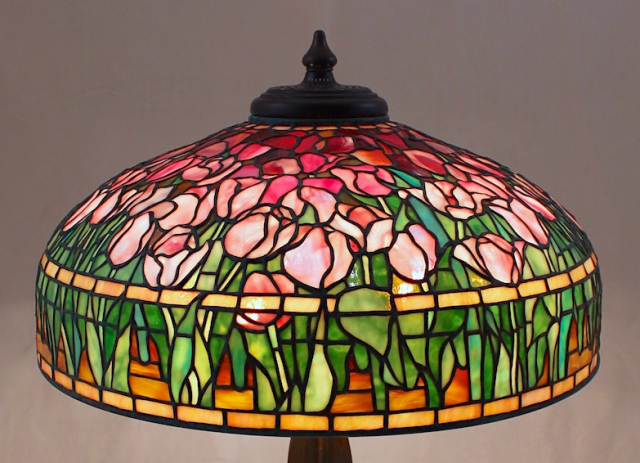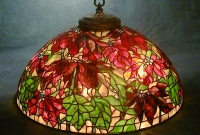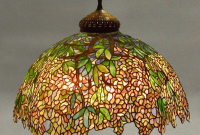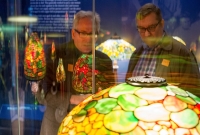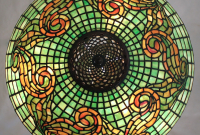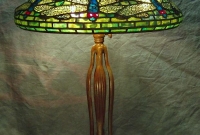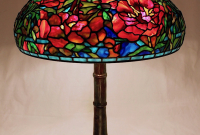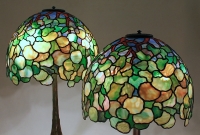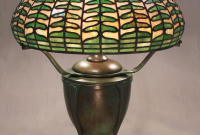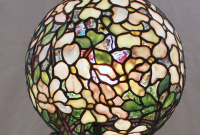The 22″ Tulip shade has been completed and shipped to our client. In our post last week, we showed the construction process up to the point where the pieces were being hand foiled.

Work progressed steadily and once the foiling was complete, Bill Campbell moved on to work on the layout for our next shade while Irwin Terry transferred the foiled pieces onto the lamp form. To hold the individual pieces in place before soldering we coat the Fiberglas lamp form in a sticky beeswax preparation we make at our studio.

Once the exterior of the shade is completely soldered we heat the form to melt the sticky wax and remove the shade. Irwin then solders the interior of the shade. For large shades like the 22″ Tulip, several reinforcing wires are soldered to the interior to provide the shade with additional support. The wires follow the curvature of the leadlines from top to bottom and are practically invisible when the shade is completed. The shade is now ready to be cleaned, copper plated, and have a verdigris patina applied to the leading.

This 22″ Tulip design challenges the glass artist with a complex layout that can be interpreted in many ways. We have always felt that most satisfying approach to this pattern is to approach it like an Impressionist painting. The densely clustered flowers at the top of the shade are an intense mix of fuchsia, purple, orange and pink, each color used in conjunction with the others to excite the eye and draw the viewer closer. Moving down the shade the blooms become more recognizable as individual flowers and the colors lighten and shift into pinks and whites. Leaves and stems crowd the lower portion of the shade in a lively mix of green reinforcing the lushness of design.
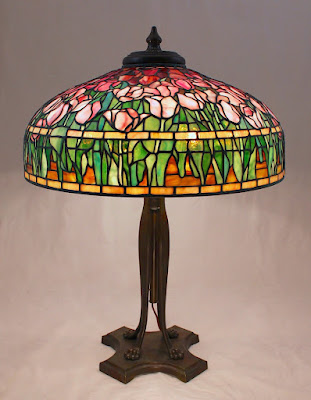
Large shades require impressively proportioned bases and the Lion’s Foot base (28″ tall, telescopes taller) has an open, elegant visual profile that perfectly compliments the 22″ Tulip shade.

